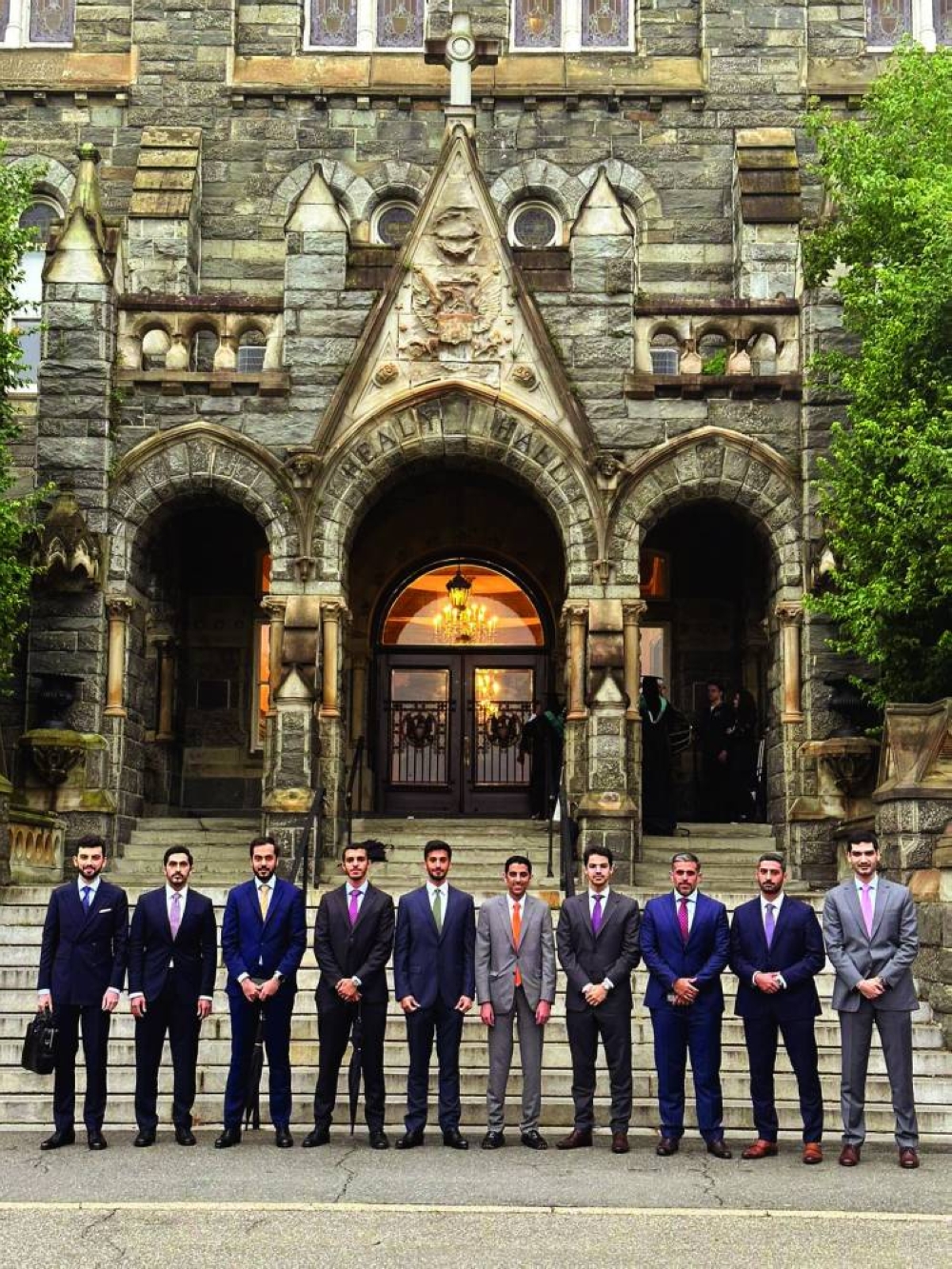Qatari diplomats enroled in Georgetown University’s Executive Master's in Diplomacy and International Affairs (EMDIA) programme deepened their understanding of global politics and diplomacy and fostered connections with key players on the front lines of international affairs through the programme's final capstone visit to Washington, DC.
Throughout the four-day residency, the EMDIA participants engaged in detailed policy discussions, job-critical networking opportunities, and hands-on experiences in diplomacy. The immersive experience allowed them to gain deeper insights into political, social, security, and economic issues shaping the global agenda.
Custom designed through a collaboration between Georgetown’s School of Foreign Service Institute for the Study of Diplomacy ( ISD) and the Diplomatic Institute at the Ministry of Foreign Affairs for Qatar, the programme's courses are taught on the campus of Georgetown University in Qatar (GU-Q).
GU-Q’s Office of Executive and Professional Education also plays a critical role, contributing to the design, development, and delivery of the program, which seeks to provide practitioners of diplomacy in Qatar and the region with the knowledge, skills, and tools necessary to tackle current and emerging regional and global challenges.
Jim Seevers, director of studies at ISD, underscored the programme’s emphasis on global affairs and diplomacy, saying: “The capstone residency focuses on experiential education, leveraging the university’s strong connections with the foreign affairs community in DC. With a deepened understanding of global issues, institutions and policy-making these EMDIA students are poised to make a lasting impact in their roles in the field of diplomacy.”
Associate dean for executive education at GU-Q, Rodolph Boughaba, noted: "GU-Q Executive and Professional Education is proud of EMDIA, an innovative initiative that empowers Qatari diplomats and international affairs professionals with unparalleled learning opportunities and analytical resources. EMDIA's mission is to foster leadership in diplomacy and international affairs, equipping participants with knowledge and analytical tools to excel on the global stage.”
Notable visits during the residency included the State Department, and the Eisenhower Executive Office Building at the White House to meet with National Security Council staff members. Participants also attended a programme at the United States Institute of Peace focused on UN peacekeeping and explored the world of think tanks and their influence on foreign policy with a visit to the Middle East Institute. And comprehensive discussions with representatives from various UN agencies shed light on the UN's vital role in addressing global challenges. Similarly, senior officials from the World Bank and US Defence Department visited the Georgetown campus to engage with the EMDIA students on the work of their organisations.
The residency included engagement with leading scholars at Georgetown including the dean of the Walsh School of Foreign Service, Dr Joel Hellman, and Ambassador (ret.) Barbara Bodine, the Director of ISD.

Qatari diplomats take part in capstone residency in Washington DC.
